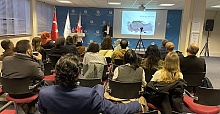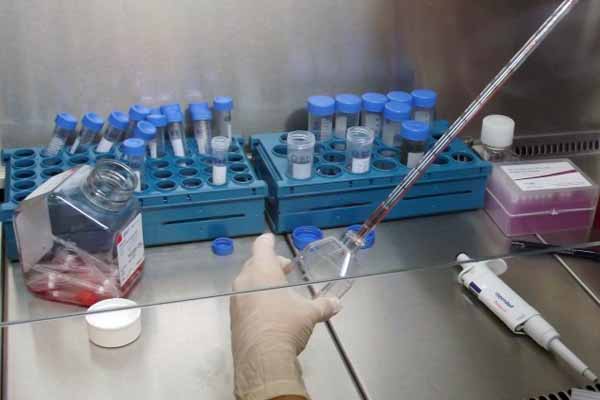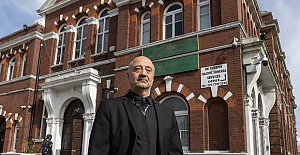For more than six months, Japan has been engrossed in the story of a 31-year-old female researcher, who became an overnight media sensation after she claimed to have discovered a new way to produce stem cells faster and cheaper. In January, prestigious British journal "Nature" published a paper by Haruko Obokata in which she made the claims, but by July it had formally repudiated it as having "critical errors." In the process it raised broader cultural questions about how research and development is financed and handled in Japan, the role of women in the country and the its lingering sense of inferiority in making original ground-breaking scientific discoveries. Obokata became a media celebrity on announcing that she and her colleagues had discovered a radical yet remarkably easy way to convert ordinary adult cells into stem cells. One of the holy grails of biology is how to create and manipulate these cells without having to revert to utilizing embryonic stem cells from humans. Her paper was technically titled: Stimulus-Triggered Acquisition of Pluripotency (SNAP). In more layman’s terms it meant shocking blood cells in a mild acid bath, thereby triggering their transformation into stem cells.
Dr. Obokata claimed success in this method, in part, because she approached it as a trained chemist rather than as a biologist.
The Japanese public, eager for a scientific success story, was momentarily entranced that such a discovery could be made by a young woman, not the usual elderly male scientist in his white smock and beard.
Rather, here was a telegenic, young woman, only three years away from defending her doctoral dissertation, looking more like a television idol than a traditional scientist. "The [press] built her up, then knocked her down," said Shohei Yonemoto of University of Tokyo.
However, things quickly began to unravel when researchers at the government-funded Riken Center for Developmental Biology in Kobe, where Obokata led a research unit, began raising questions whether she altered some if the images from her experiments and fabricated data. Riken set up and in-house investigative unit after "problems" were discovered in the research.
Japan’s research and development network and academia are among the most hidebound institutions in Japan. Younger researchers or professors are expected to defer to their more senior members, just like the younger "salary men" defer to their section heads in the business world.
Moreover, the government has poured billions in yen to support research into alternative methods of inducing stem cells under the leadership of one of Shinya Yamanaka at Kyoto University, who won the Nobel Prize for Medicine in 2012.
Only about one in seven science researchers in Japan is a woman. Riken was actually considered progressive on this front for hiring and promoting female researchers, although in this instance possibly a little too quickly. Prime Minister Shinzo Abe has made empowerment of women one of the themes of his plan to boost the Japanese economy.
Many younger scientists go abroad to the U.S. and other countries where they feel they can work more freely. Obokata herself had studied at Harvard Medical School, where one of her staunchest allies and co-author Charles Vacanti is based.
He stood by Obokata. "I do not believe that these errors affect the scientific content or conclusions," he told BioNews.
Even then she defended the integrity of her research broadly speaking: "The research was done accurately, and the data exists to prove it so," she said. "The [research] paper was not completed with malicious intent."
Reluctantly, she and the other six authors of the paper agreed to withdraw it from publication. No decision has been made yet as to her status at Riken.
What must now be considered the Obokata Scandal echoes memories of another stem cell controversy in South Korea, where University of Seoul researcher Hwang Woo-suk claimed to have made a historic breakthrough in stem cell research only to be later unmasked as a phony.
Asians have sometimes been accused of having a kind of inferiority complex about science. Japanese -- in particular -- accused of being geniuses at adapting technology to household uses, but lagging behind when it comes to original research, or so the argument -- true or false? -- goes.
When four Japanese scientists won Nobel Prizes for scientific research in 2009 all of Japan rejoiced. Yet it represented a third of the number of prizes Japanese had won in the science categories since the inception of the award.
Koreans took the fall of Hwang even harder. He had been built up in the press as "the pride of Korea," and was the subject of millions of dollars-worth of government assistance for his laboratory. The government promised to keep supporting stem cell research "so not to frustrate the people’s hopes."
In this case the "hopes" were not for finding cures for such difficult diseases as Parkinson’s disease, but national hopes to be in the forefront of scientific innovation.
Now with this latest scandal, Japan’s weaknesses -- and hopes -- have been dashed, at least temporarily.



 The candidates vying to be the next London mayor
The candidates vying to be the next London mayor Enfield Council commits to anti-racism and diversity pledge
Enfield Council commits to anti-racism and diversity pledge President Erdogan promised supporters his party would learn its lessons from the defeat
President Erdogan promised supporters his party would learn its lessons from the defeat Mayor of London and London Assembly elections
Mayor of London and London Assembly elections Off duty Police sergeant Eren Emin catch suspected thief while on stag do
Off duty Police sergeant Eren Emin catch suspected thief while on stag do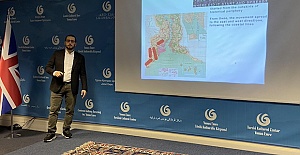 A Century of Urban Transformation, Istanbul’s Evolution
A Century of Urban Transformation, Istanbul’s Evolution Future Painters Exhibition at Tottenham Hotspur Stadium
Future Painters Exhibition at Tottenham Hotspur Stadium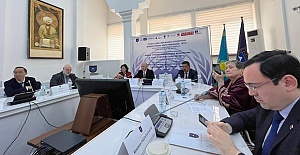 Models of Teaching International Journalism for Sustainable Development
Models of Teaching International Journalism for Sustainable Development English Premier League leaders Arsenal will visit title contenders
English Premier League leaders Arsenal will visit title contenders Liverpool meet Atalanta and West Ham face Bayer Leverkusen
Liverpool meet Atalanta and West Ham face Bayer Leverkusen Arsenal face Bayern Munich and Manchester City play Real Madrid
Arsenal face Bayern Munich and Manchester City play Real Madrid UK Transfer deadline day, the transfer window closes tonight
UK Transfer deadline day, the transfer window closes tonight Petrol prices on UK forecourts hit 150p a litre
Petrol prices on UK forecourts hit 150p a litre Europe's travel strikes: Flight and train disruption you can expect in April
Europe's travel strikes: Flight and train disruption you can expect in April Enfield Council website achieves digital inclusion recognition
Enfield Council website achieves digital inclusion recognition Enfield Council’s Planning Enforcement team goes from strength to strength
Enfield Council’s Planning Enforcement team goes from strength to strength



